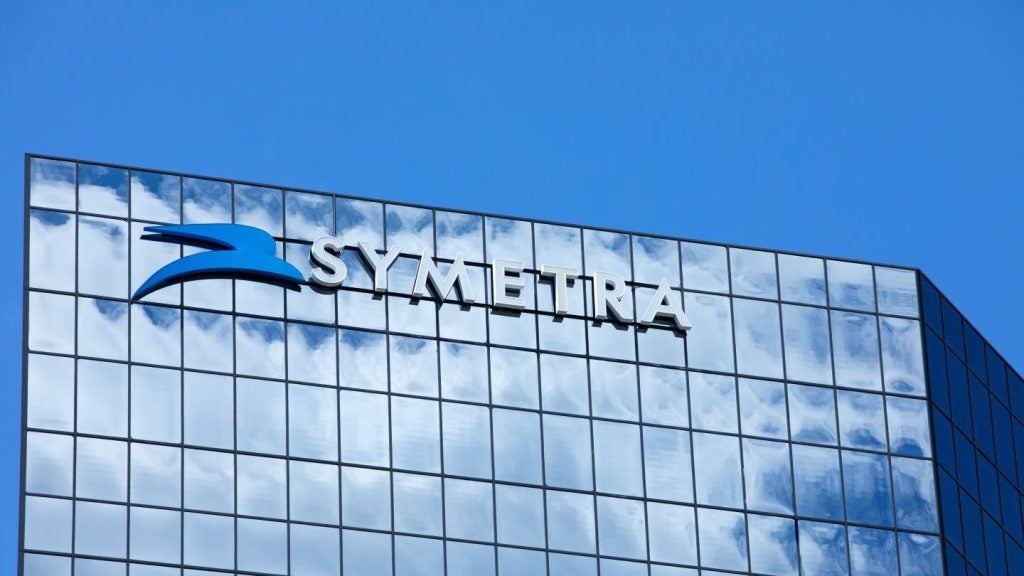MERGERS AND ACQUISITIONS
Marsh acquires HSBC insurance
broking unit
In a move aimed at rationalising its
insurance interests, UK bank HSBC is to sell its UK-based general
and speciality insurance broking unit HSBC Insurance Brokers Ltd
(HIBL) to US insurance broking specialist Marsh.
As consideration for the sale, HSBC will
receive £135 million ($218 million) in a combination of cash and
shares in Marsh & McLennan Companies, Marsh’s parent
company.
Commenting on the deal, Clive Bannister,
HSBC’s group MD of insurance, said: “The beauty of this agreement
is that on the one hand we are improving the breadth and
sophistication of HSBC broking services for our customers, while at
the same time sharpening our strategic focus on the bancassurance
model with emphasis on life, pensions and investments.”
Concurrent with the HIBL deal, Marsh and HSBC
announced that they have entered into a preferred strategic
partnership (PSP). Under the terms of the PSP, Marsh will have
preferred access to provide insurance broking and risk management
services to HSBC’s corporate and private clients.

US Tariffs are shifting - will you react or anticipate?
Don’t let policy changes catch you off guard. Stay proactive with real-time data and expert analysis.
By GlobalDataMERGERS AND ACQUISITIONS
Boost for BNP Paribas’ affluent
client reach
In a move aimed at strengthening its
distribution capabilities in France’s high net worth private client
market, French bancassurer BNP Paribas’ insurance arm, BNP Paribas
Assurance, has acquired Dexia Epargne Pension (DEP), a unit of
Belgian bank Dexia Group. No financial details of the deal were
disclosed.
Based in France, DEP is focused on marketing
savings products and services to over 60 partners, including
private banks and asset management firms and since its
establishment in 2001 has grown to become the third-ranking life
insurance partner for banks in France.
Eric Lombard, chairman and CEO of BNP Paribas
Assurance said: “The businesses of Dexia Epargne Pension and our
Networks and Partnerships Division are an excellent fit, both in
terms of the partners we serve and the products we have each chosen
to develop.”
At the end of 2008, DEP reported €4 billion
($1.45 billion) in assets under management.
MERGERS AND ACQUISITIONS
CNP Assurances completes
Southern European refocus
French insurer CNP Assurances (CNP)
has completed a restructuring in Southern Europe by selling its
83.57 percent stake in Portuguese life insurer Global Vida and
83.52 percent stake in Portuguese general insurer Global.
CNP’s stakes in the two insurers have been
bought by Rentipar Seguros, a company controlled by Horacio da
Silva Roque, founder and majority shareholder of Portuguese
bancassurer Banif Group, for a total consideration of €117 million
($168 million).
CNP explained that following recent
partnerships entered into with Barclays Bank in Spain, Portugal and
Italy (see LII 237) and with Marfin Popular Bank in Greece
and Cyprus, the sales finalised its refocusing in Southern Europe
on its bancassurance core business.
A small player in Portugal’s life market,
Global Vida generated premium income of €38.7 million in 2008,
giving it a 0.5 percent market share.
Global’s premium income of €143.2 million gave
it a 3.3 percent share of Portugal’s general insurance market.
With inclusion of Global Vida and Global,
Rentipar Seguros, which owns Portuguese composite insurer Companhia
de Seguros Açoreana, will generate annual premium income of about
€680 million and have assets under management of €1.4 billion.
Its share of Portugal’s insurance market –
based on 2008 figures – will be about 3.4 percent in the life
sector and 7.7 percent in the general sector.
COMPANIES
Allianz renewable energy
investment forges ahead
European insurer Allianz’s renewable
energy investment strategy launched in 2005 took another step
forward in December 2009 with the acquisition of the Mont Gimont
wind farm in France. No financial details of the deal were
disclosed.
Housed in Allianz Specialised Investments
(ASI), the Mont Gimont project represents Allianz’s largest wind
farm investment in France.
According to ASI, the Mont Gimont wind farm
increases its total operational electricity production capacity in
Europe to over 450 megawatts.
Indicative of the scale of ASI’s wind farm
investment portfolio, the World Wind Energy Association estimates
that total world wind based electricity capacity will have ended
2009 at about 152,000 megawatts.
From a cost perspective, US non-profit
organisation Windindustry estimates that the cost of a commercial
scale wind turbine (in 2007) ranged from $1.2 million to $2.6
million per megawatt capacity.
Based on this estimate the value of ASI’s wind
farm portfolio would be between $540 million and $1.2 billion.
PENSIONS
Swiss Re’s pioneering UK
longevity risk deal
In its first longevity transaction
with a pension fund, Swiss Re has completed the transfers of
longevity risk for the Royal County of Berkshire Pension Fund’s
(RBPF) existing 11,000 pensioners in an insurance policy-based
transaction involving some $1.64 billion in pensioner
liabilities.
Registering another first, the transaction
represented the first longevity hedging deal for a British local
government pension scheme.
Costas Yiasoumi, Swiss
Re’s MD for pensions, commented that although Swiss Re has
done longevity transactions in the past – most recently with two
deals in Australia – this was the first transaction that the
company has performed with a pension plan.
“This is an important, additional market for
us and one that we have never operated in before,” said
Yiasoumi.
“Another innovative feature of the transaction
is that the premium and the claims are index-linked to take into
account inflation in the future.”
On future prospects Yiasoumi said: “The
potential market for these transactions is significant, and
acquiring business in this area would be in line with our strategic
goals.”
He added that given Swiss Re’s significant
mortality risk book, the Swiss reinsurer has “a strong appetite for
longevity risk.”
ASSET MANAGEMENT
Standard Life wins French
pension mandate
Registering an important client-win,
UK insurer Standard Life’s investment management unit Standard Life
Investments (SLI) has been selected by the French reserve pension
scheme Fonds de Réserve pour les Retraites (FRR) to jointly-manage
a €1 billion ($1.44 billion) European investment-grade credit
portfolio.
“To manage an account for a scheme of this
size and reputation represents a significant milestone for Standard
Life Investments,” commented Jill Shaw, SLI’s European business
development investment director.
SLI’s five-year mandate from the FRR sets it
the objective of outperforming the Barclays Capital Euro Corporate
[bond] Index.
SLI will be co-manager together with Axa
Investment Management, BNP Paribas Asset Management, Halbis Capital
Management (HSBC), La Banque Postale Asset Management and Quoniam
Asset Management. The appointments form part of a revamp by the FRR
of fixed-income management mandates announced in April 2009.
The FRR was established in 1999 by the French
Social Security Financing Act and functions as a state-funded
administrative agency.
Funds allocated to the FRR are held in a trust
and from 2020 will be used to contribute to the two state mandatory
old age insurance plans for employed workers and self-employed
workers.
The FRR received new funds of €1.8 billion in
2008 and ended the year with total assets of €27.6 billion.
INDUSTRY TRENDS
Centurion gets go-ahead for
unique longevity fund
In a claimed first in the longevity
investment fund market, UK-based Centurion Fund Managers has
received approval from Luxembourg’s Commission de Surveillance du
Secteur Financier to establish the Centurion Longevity Fund (CLF),
an open-ended fund combining macro and micro longevity
strategies.
According to Centurion, at the micro level the
CLF gives investors exposure to longevity funds with both physical
and synthetic life settlements, based on lives that are
individually underwritten.
At the macro level, the CLF invests in
longevity derivative products including longevity notes, swaps and
indices where there is no underwriting on the individual lives and
the investment returns are based on the longevity experience of a
large population.
The CLF into which a minimum investment of
€125,000 ($180,000) will be accepted is denominated in US dollars,
euro and UK pounds and is targeted by Centurion to deliver an
annual return of between 6 percent and 9 percent.
Centurion has set an informal target of $100
million in total assets for the CLF.
Established in 1999, Centurion already has
three longevity funds in which it manages total assets of about
$400 million. Management fees are 1.25 percent with a 15 percent
performance fee deducted on annual returns exceeding 9 percent.
HEALTH INSURANCE
Canada’s health cost rises
sharply in 2009
In common with countries worldwide,
Canada will see the cost of health care in 2009 rise inexorably,
with the Canadian Institute for Health Information (CIHI)
predicting a total increase of 5 percent compared with 2008 to
C$183.1 billion ($174 billion).
The CIHI noted that its 2009 estimate
represents an increase of C$241 per citizen, bringing total health
expenditure per capita to an estimated C$5,452 – increasing health
spending’s share of Canada’s GDP from 10.8 percent in 2008 to 11.9
percent.
Adjusted for inflation and population growth,
spending on health care in 2009 is expected to have grown by 2.5
percent in total.
The burden of health spending remains firmly
on the public sector – which in 2009 is anticipated by the CIHI to
have accounted for C$128.6 billion, or 70.2 percent of total
spending.
The private sector spent C$54.5 billion, or
29.8 percent, of total spending. The CIHI noted that this
approximately 70:30 public/private ratio has remained virtually
constant since 1997.
Based on 2007 data, the latest available,
out-of-pocket expenses by individual Canadians represented 15
percent of total health expenditure, or C$23.4 billion. Private
insurance accounted for 12 percent, or C$19.5 billion.
COMPANIES
ING begins China
exit
Advancing its exit from the
insurance industry, Dutch bancassurer ING is to sell its 50 percent
stake in its Chinese joint venture (JV), Pacific Antai Life
Insurance, to China Construction Bank for an undisclosed sum.
Shanghai-based Pacific Antai has
some 300,000 policyholders and total assets of CNY3.5 billion ($510
million).
Antai Life was established in October 1998 and
became ING’s first life insurance JV in China in July 2000
following its acquisition of the US financial services and
international life insurance operations of US insurer Aetna.
ING’s Chinese partner in Antai Life is China
Pacific Insurance, parent company of the country’s third-largest
life insurer, China Pacific Life, and second-largest general
insurer, China Pacific Property
Insurance.
For now, ING retains a 50 percent stake in
another Chinese JV, ING Capital Life which it established together
with Beijing Capital Group in July 2002.
COMPANIES
Max India gets Goldman Sachs’
backing
Marking its entry into India’s
insurance market, US investment bank Goldman Sachs has made a $115
million investment in Max India by way of the purchase of new 12
percent compulsory convertible debentures.
Upon conversion of the debentures in
15 months time, Goldman Sachs will have a 9.4 percent stake in Max
India, a conglomerate focused on life and health insurance.
The investment bank joins Max India’s other
major foreign investors: The International Finance Corporation, a
World Bank unit; US private equity firm Warburg Pincus; UK bank
HSBC; US insurer Prudential; and US investment companies Federated
Kaufmann, Fidelity and Janus.
In addition to the Goldman Sachs investment,
Max India’s joint venture partners, US mutual insurer New York Life
(NYL) and UK health insurer Bupa, will invest some $37 million each
in the India insurer.
NYL has a 26 percent stake in Max New York
Life (MNYL) and Bupa has a 26 percent stake in Max Bupa Health
Insurance which is awaiting regulatory approval to commence
operations.
In Max India’s financial year ended 31 March,
it reported that MNYL had recorded premium income of about $870
million, up 39 percent compared with 2007/08. MNYL ended the year
with 3.5 million policyholders.
HEALTH INSURANCE
India gets combined life and
health products
Responding to requests from the
insurance industry, India’s Insurance Regulatory and Development
Authority (IRDA) granted permission for the introduction of a new
class of insurance product that combines life and health
insurance.
The IRDA has named the new class “Health plus
Life Combi Products”, which will be generally referred to as combi
products.
In its formal announcement of combi products,
the IRDA specified that they must be a combination of pure term
life insurance cover offered by life insurance companies and health
insurance cover offered by non-life insurance companies.
Life and non-life insurers offering combi
products are limited to only one alliance each.
The IRDA anticipates that the product will
lead to greater penetration of personal lines of insurance in the
Indian market.







